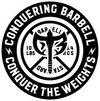Weight cutting is a common practice among powerlifters in preparation for a meet. The goal of weight cutting is to compete in a lower weight class than one's natural body weight, in order to have a competitive advantage over opponents in that class. While weight cutting can be effective in achieving this goal, it also has its risks and challenges that need to be taken into account.
Before engaging in weight cutting, it is important to consult with a coach or nutritionist who can help you develop a plan that is safe and effective. Cutting weight too quickly or drastically can result in negative consequences such as dehydration, fatigue, and decreased performance.
The first step in weight cutting is to determine your current body weight and the weight class you want to compete in. From there, you can develop a plan to gradually reduce your weight over several weeks leading up to the meet. This plan may include adjusting your diet, increasing cardio, and reducing water intake.
One common approach to weight cutting is to focus on reducing body fat while preserving muscle mass. This can be achieved by reducing calorie intake while maintaining a high protein diet and increasing the frequency and intensity of cardio exercises. However, this approach can be difficult to maintain over an extended period of time and may result in decreased strength and performance.
Another approach to weight cutting is to use water manipulation techniques. This involves reducing water intake in the days leading up to the meet in order to temporarily shed excess water weight. This approach can be effective in achieving a quick weight loss, but it can also be risky if not done properly. Dehydration can lead to decreased performance and even health complications.
Once you have reached your desired weight, it is important to maintain it in a healthy and sustainable way. Rapid weight gain after a meet can be harmful to your body and can affect your performance in future competitions. It is recommended to gradually increase calorie intake and return to a balanced diet after the meet.
In addition to the physical challenges of weight cutting, it can also take a toll on mental and emotional health. The pressure to meet a certain weight class can lead to stress and anxiety, and the strict diet and exercise regimen can be difficult to maintain. It is important to prioritize mental health and seek support from coaches, friends, or mental health professionals as needed.
In conclusion, weight cutting can be an effective strategy for powerlifters looking to compete in a lower weight class. However, it is important to approach weight cutting in a safe and sustainable way, with guidance from a coach or nutritionist. Balancing physical, mental, and emotional health is key to achieving success in powerlifting competitions. Please consult your doctor prior to participating to a weight loss/weight cut protocol. The information provided should be taken with a grain of salt.
All information presented and written within conqueringbarbell.co are intended for informational purposes only. You should not rely on this information as a substitute for, nor does it replace, professional medical advice, diagnosis, or treatment. If you have any concerns or questions about your health, you should always consult with a physician or other health-care professional.










